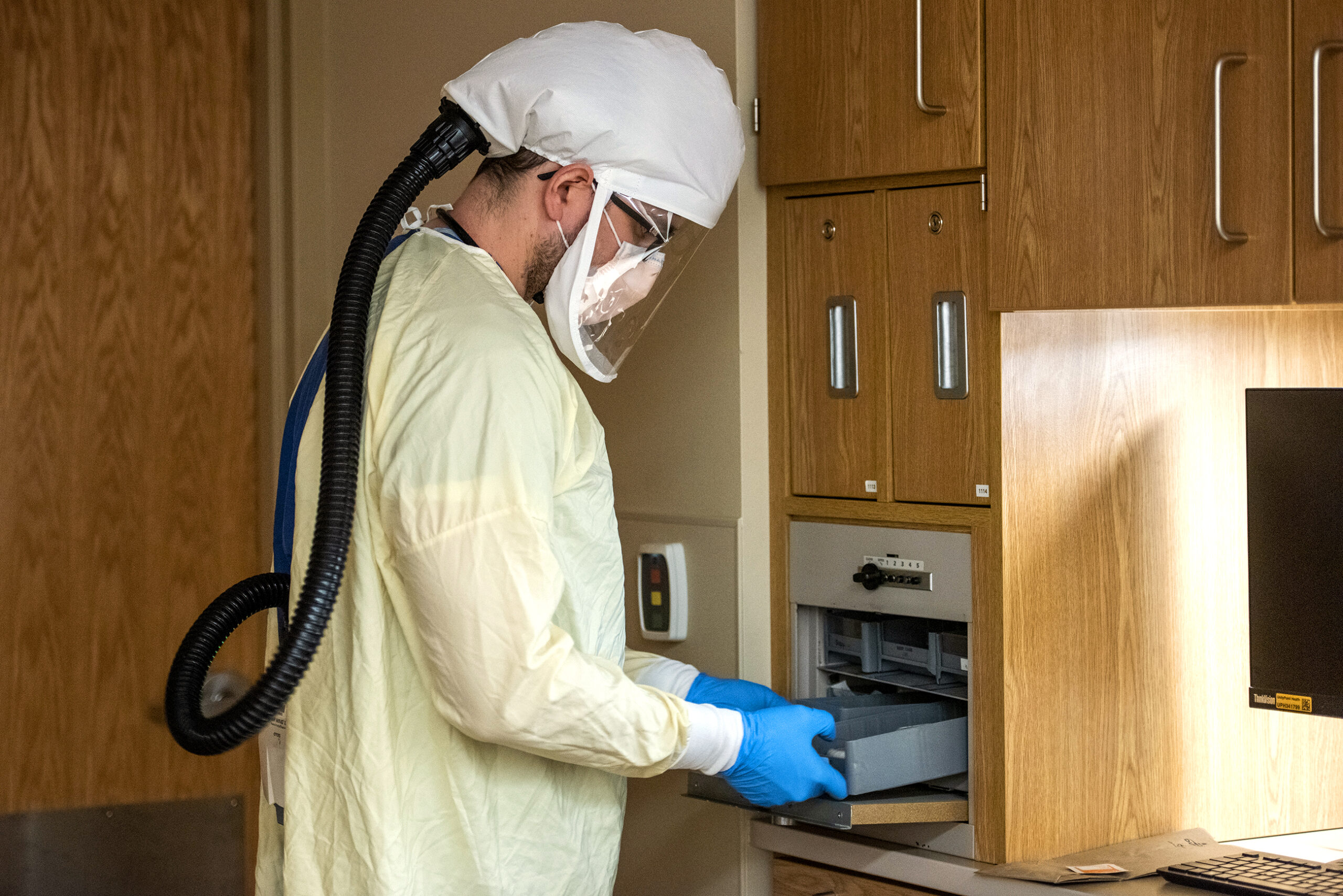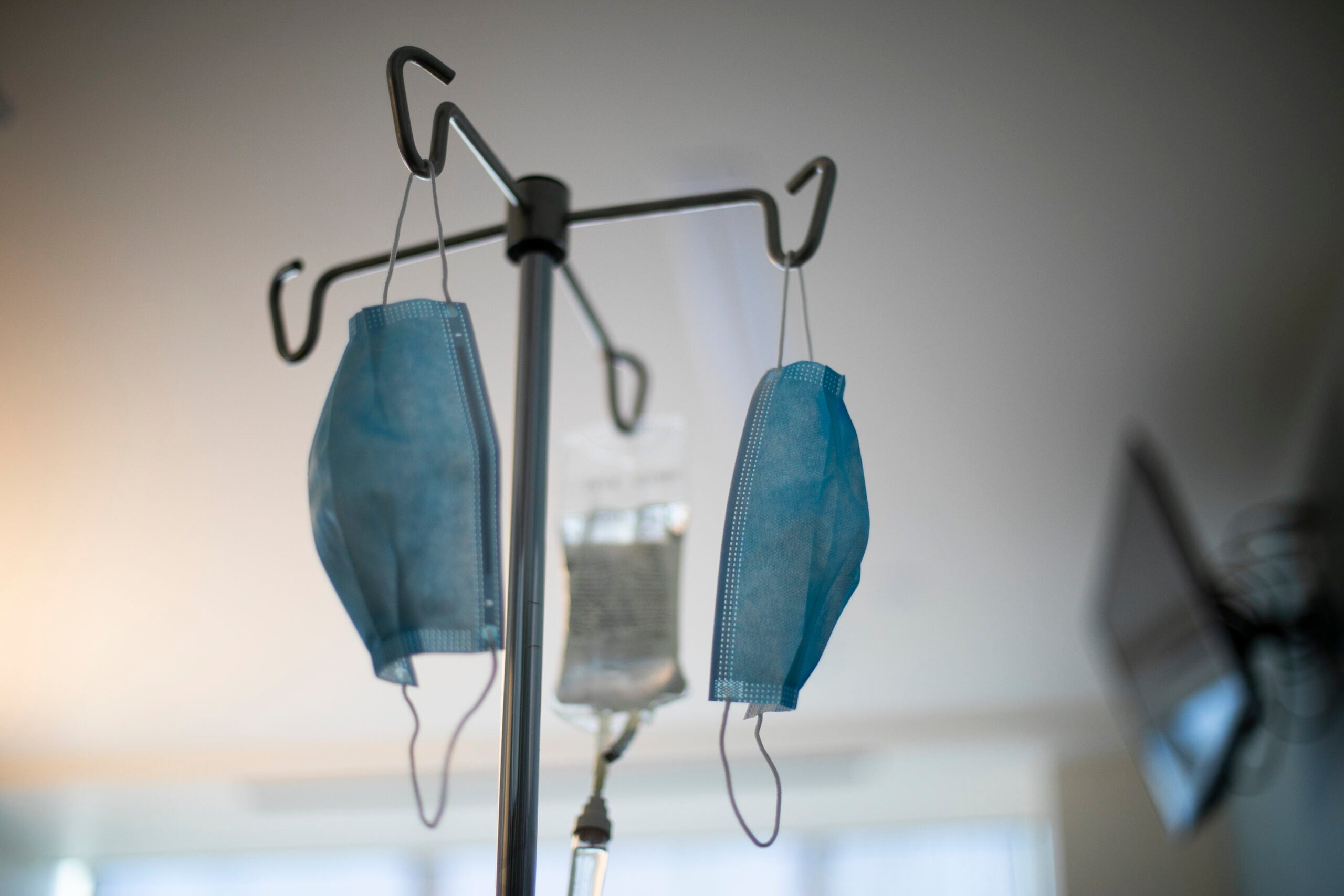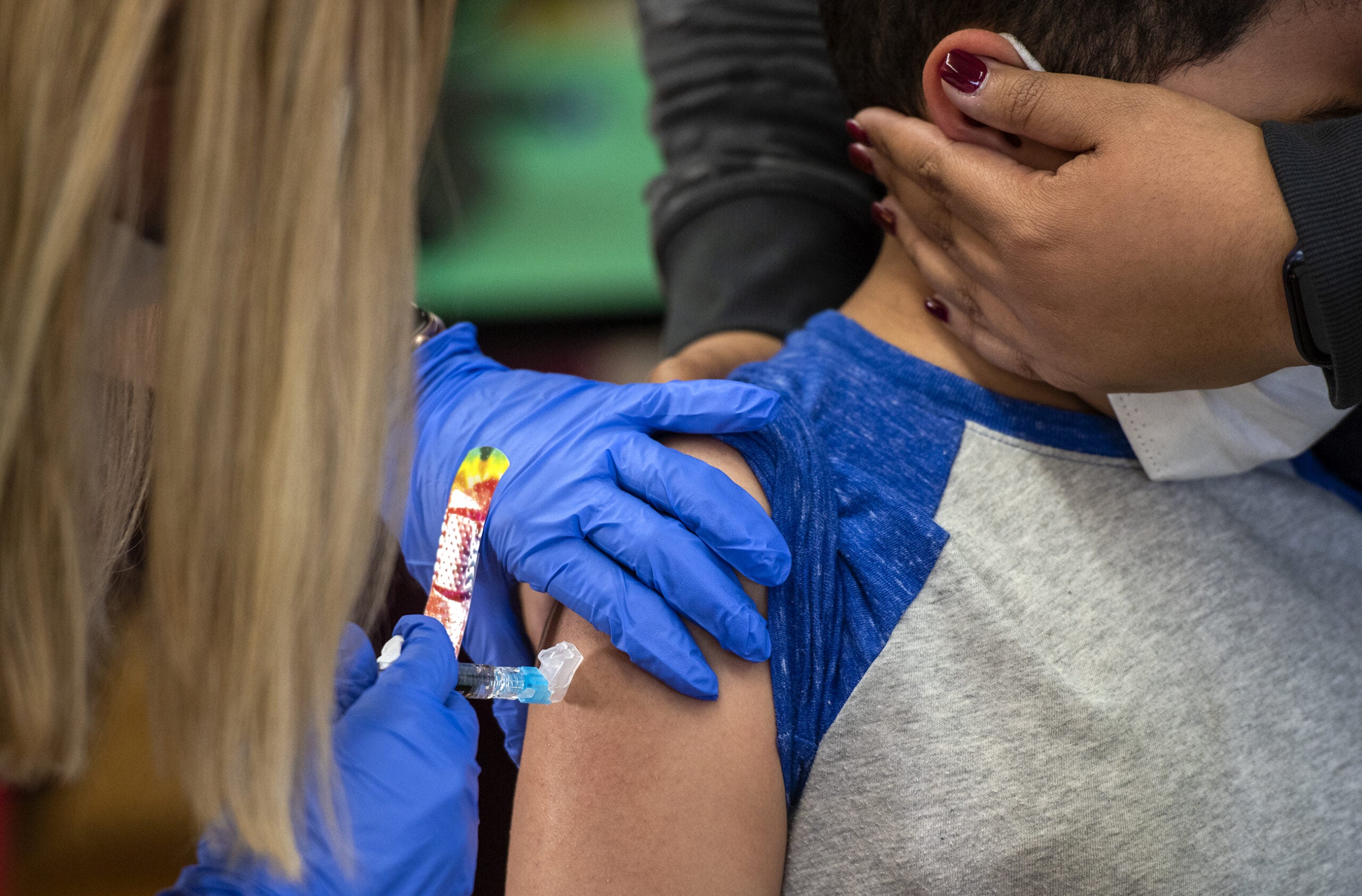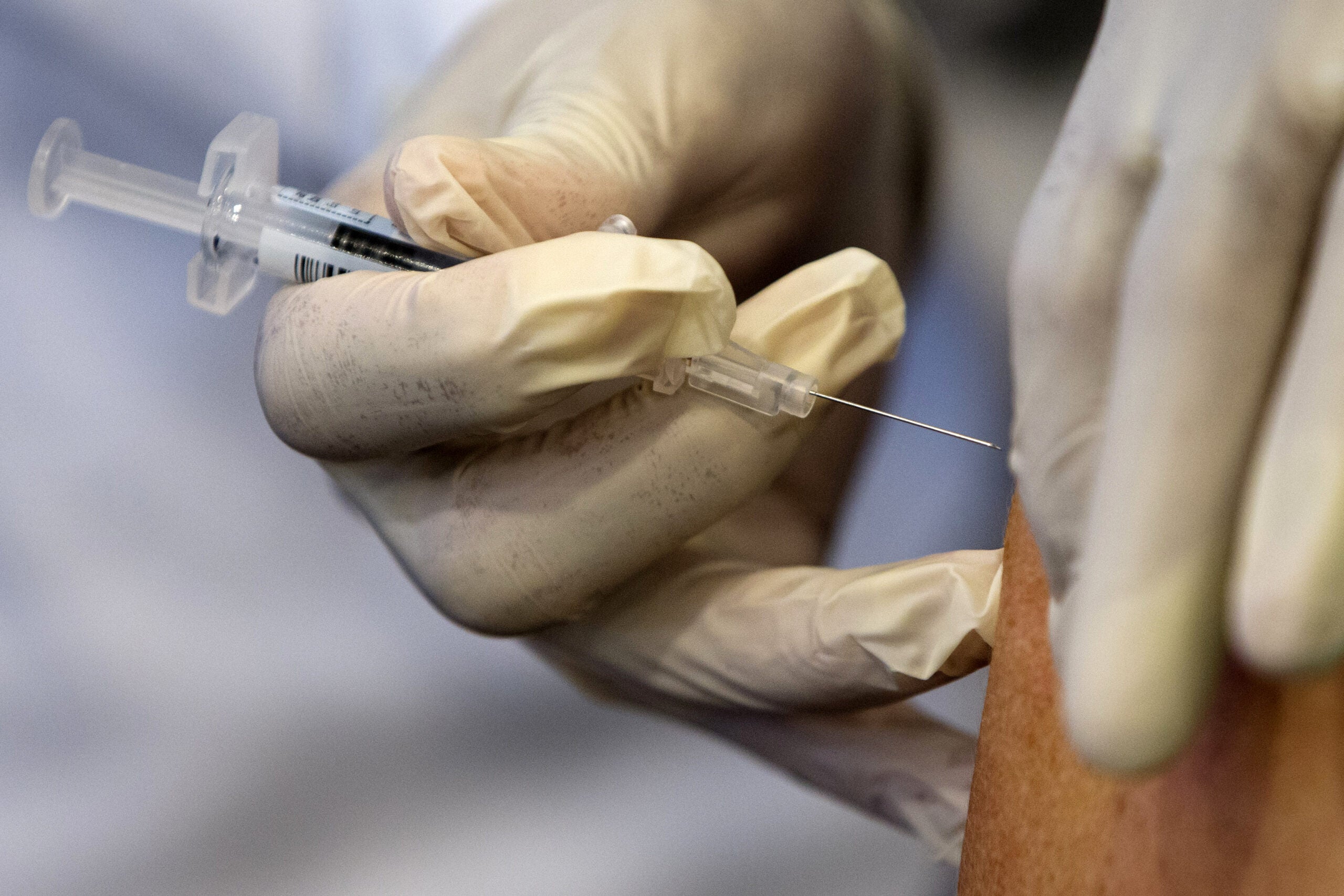Respiratory viruses continue to circulate in Wisconsin communities, leading some hospital systems to again require masks for all patients and staff.
On Tuesday, UW Health returned to requiring masks in medical clinics, outpatient care and waiting rooms.
Dr. Jeff Pothof, UW Health’s chief quality officer, said the health care system has continued to require masks in areas with highly vulnerable patients like transplant or cancer treatment centers since the height of the pandemic. But with moderate levels of influenza-like illnesses now present across the state, he said hospital leaders felt it was time to return to masking in other areas.
News with a little more humanity
WPR’s “Wisconsin Today” newsletter keeps you connected to the state you love without feeling overwhelmed. No paywall. No agenda. No corporate filter.
“(We want) to do our part to reduce disease transmission among our patients, our staff and to maybe a small extent, the greater community until those numbers start to decrease,” Pothof said. “We don’t need to be doing this stuff year round, but when numbers are really high, the benefits start to exceed the risks.”
The Wisconsin State Journal reported Tuesday that UnityPoint Health-Meriter in Madison has also reinstated mask requirements for patients and staff.
Respiratory virus surveillance data from the state Department of Health Services shows that influenza, COVID-19 and respiratory syncytial virus, or RSV, are all circulating at significant levels in the state. The latest data from Dec. 9 found that of the tests performed for the three viruses, more than 10 percent were positive.
Pothof said that’s a much higher rate than a month or two ago.
“We also look at staff data,” he said. “We are seeing more staff calling in sick with respiratory symptoms as the reason that they’re out. So it’s all kind of coalescing around this idea that those viruses are in the community.”

Dr. Mary Beth Graham, infectious disease specialist for Froedtert Health, said she’s also heard anecdotally from patients that there are more respiratory illnesses going around.
“I had clinic this morning, and two of the patients I took care of were talking about how their Christmas plans were kind of blown up because family members have COVID,” Graham said on Tuesday. “So we’re seeing a lot in the community, but not as many people in the hospital.”
Graham said the number of hospitalizations from COVID-19 and influenza have increased in the last month, but they’re not as high as in previous years.
As of Dec. 9, the seven-day average for COVID-19 hospitalizations was 403 people, according to DHS data. By comparison, the average was 556 patients on the same day in 2022.
DHS data shows there have been a total of 274 influenza-associated hospitalizations as of Dec. 9. That’s much lower than the same point in 2022, when there were 1,336 hospitalizations, but higher than in 2019, when there were 109 hospitalizations.
Graham said Froedtert has continued to require mask wearing in areas with vulnerable patients, but they have not moved toward requiring masks for all patients and staff. She said hospital leadership has been discussing the issue in recent weeks.
“I think we have very logical guidelines for when it’s appropriate to wear a mask for our patients in the hospital,” she said. “If you’re concerned about it, there’s nothing in our guideline that says you can’t mask.”
Health officials urge vaccination over the holidays
As residents travel out of state or gather together for the Christmas and New Year’s holidays next week, Graham said it’s likely Wisconsin will see an uptick in respiratory virus spread in the coming weeks. While it takes around 10 days for a person’s body to build immunity from a vaccine, Graham still encouraged everyone to get the latest flu shot and COVID-19 booster.
“Yes, your 20-year-old should get their flu vaccine, especially if they’re going to be spending time with parents or grandparents over the holidays,” she said. “It’s not just about you; it’s about your family or community. You are doing this to protect somebody else that you love.”
The latest data shows 30 percent of Wisconsin residents have received a flu shot this season and less than 13 percent have gotten the updated COVID-19 vaccine this year.
Pothof said people should also think about the health risk of the individuals who are going to be a part of their holiday gatherings. As an example, he said a group of healthy, vaccinated people may not worry about someone bringing the flu to their Christmas party, but a family with someone going through cancer treatments may ask everyone to take a COVID test before coming to dinner.
“I don’t think that there’s any reason that everyone needs to be masked up for this Christmas,” he said. “We certainly don’t need to cancel Christmas. The risk is just much, much lower than it was during the pandemic.”
He said anyone who is exposed to a respiratory illness over the holidays should be mindful of their symptoms and should stay home as much as possible if they become sick to keep from spreading a virus to someone else.
Wisconsin Public Radio, © Copyright 2025, Board of Regents of the University of Wisconsin System and Wisconsin Educational Communications Board.






